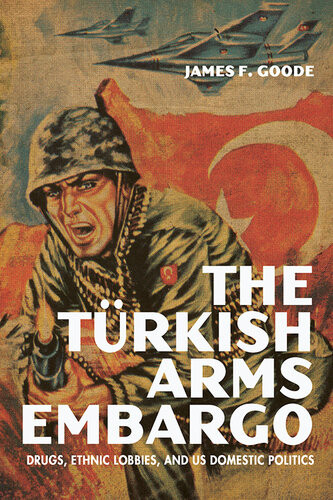

Most ebook files are in PDF format, so you can easily read them using various software such as Foxit Reader or directly on the Google Chrome browser.
Some ebook files are released by publishers in other formats such as .awz, .mobi, .epub, .fb2, etc. You may need to install specific software to read these formats on mobile/PC, such as Calibre.
Please read the tutorial at this link: https://ebookbell.com/faq
We offer FREE conversion to the popular formats you request; however, this may take some time. Therefore, right after payment, please email us, and we will try to provide the service as quickly as possible.
For some exceptional file formats or broken links (if any), please refrain from opening any disputes. Instead, email us first, and we will try to assist within a maximum of 6 hours.
EbookBell Team

0.0
0 reviewsIn August 1974, while Richard Nixon resigned and Gerald Ford began a prolonged battle with Congress over executive power, a crisis was occurring in Cyprus. Desperate to shore up its declining popularity with a foreign policy triumph, the military government of Greece tried to overthrow the government of the independent island nation. In response, the Republic of Turkey invaded Cyprus in order to protect Turkish Cypriots. The invasion led to the downfall of the junta in Athens, the beginning of a United States embargo on arms sales to its ally Turkey, and years of increased tension and mistrust between the two nations.
In his book,James F. Goode offers a revolutionary analysis of the complex factors leading to the imposition and continuance of the 1975–1978 Turkish Arms Embargo. He demonstrates that, alone, the human rights issues surrounding the invasion fail to explain the resulting US-Turkish estrangement. Instead, he contends, factors including deep-seated "Turkophobia," growing concern about a deadly heroin epidemic in the United States, and pro-Greek lobbies played important roles in heightening tensions and extending the embargo.
Goode draws on newly available archival materials from the Gerald Ford and Jimmy Carter Presidential Libraries as well as the often-overlooked personal papers of key congressmen to present the most complete analysis of the affair to date. This timely study will not only change how this period is understood, but it will also provide valuable insights into the future of international relations in the Middle East and beyond.